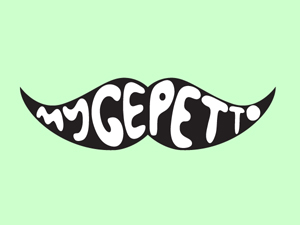We continue our My Gepetto series of interviews with Ross Sutherland, a Mercy collaborator on page and stage since 2003. His first collection Things To Do Before You Leave Town is available now as are tickets for his new poetry/stand-up hybrid show, The Three Stigmata Of Pac-Man (Jan 12th to 31st, Old Red Lion, St John Street, London).
- What artist / human / thing(s) would you say you have been most influenced by?
Dr Who
- What is it about this 'thing' that you find intriguing?
I was brought up on sci-fi as a kid. My Dad has a loft full of pulp sci-fi novels that I’ve been working my way through since I was 11.
My Dad used to manage the IT floor for a law firm in the 1980s, back in the halcyon days of male perms and Winchester hard-drives. Being in IT in the 80s meant wearing a white anti-static suit and feeding punched cards into giant whirring tumble driers. I remember visiting him in the office and thinking that I had just jumped into an episode of Doctor Who. That feeling has stayed with me as I’ve got older; this notion that we are somehow already living in the future. A future with a very tight props budget.
When I started writing poetry as a teenager I always approached it with the sensibilities I got from watching/reading sci-fi:
1. It’s OK to invent lurid sentences that don’t make sense. The reader will work out what it means by the way you use it.
2. It’s OK to set things in a parallel universe where T.S. Eliot and your English teacher don’t exist.
3. The apes/robots/etc are always metaphors for us.
- If you were to pick the most important work by this person, what would it be? Why?
It has to be the Patrick Troughton years. It’s a shame that so many of the tapes got destroyed. Recently I rewatched Evil of the Daleks. Troughton gets kidnapped and taken to Victorian England, where Daleks are running tests on humans to isolate the “human factor” that always allows humans to defeat them. Troughton pretends to help, but then implants the human factor into a couple of Daleks, making them all giggly and playful.
Everyone gets transported to the Dalek home planet, where the Daleks try to implant the “Dalek factor” into the Doctor, in the hope of making him evil, but through some classic Troughton skulduggery, the Doctor ends up implanting loads more Daleks with the “human factor”, which ends up triggering a civil war between nice Daleks and evil Daleks. Troughton plays a sprightly recorder solo. Fin.
All the space/time jumping makes the story really fun, and it must have been pretty groundbreaking TV back in 1967. Troughton is really callous as well, which is one of my favourite Doctor traits. He’s really sneaky and manipulative. When his assistant threatens to leave, Troughton growls, 'I am not a student of human nature. I am a professor of a far wider academy of which human nature is merely a part'. Soon afterwards we get to see him pushing a Dalek off a cliff.
- The most underestimated? And why?
I think people should stop hating on Sylvester McCoy. There were loads of great McCoy episodes. There was Paradise Towers, with an oily Richard Briers being possessed by a hotel complex supercomputer. There was The Happiness Patrol, featuring a camp robotic Bertie Basset who murdered people in molten candy (and answered the phone “Candyman!”). There was the World War 2 eco-vampire thriller Curse of Fenric, which was like a cross between a John Carpenter movie and having tea with Nicolas Parsons…. I mean, those three episodes were worth the incarnation alone.
(Bonnie Langford is still shit, though.)
- The most over-rated? And why?
Gonna leave this question. It’s all too easy to over-rate Doctor Who.
- Which work of yours most bears this influence?
I might not have set many poems on abandoned space stations, but at the same time, sci-fi gave me the freedom to put aside anxieties about Literature and The Self and just have fun with writing. These days, my private universe still doesn’t have a decent props budget, the sets still wobble a bit, and the monsters are still clearly midgets in rubber suits, but I’d like to think I’m doing things with a bit more charisma all round.
Now I look back on my childhood watching Doctor Who and I’m reminded of how much confidence it gave me to write. I love how insanely ambitious it is. It manages to pull off being extremely camp, whilst still being philosophical, political and occasionally quite moving. Even when it fails, it does it with a grin on its face. I can’t think of a better role model.




